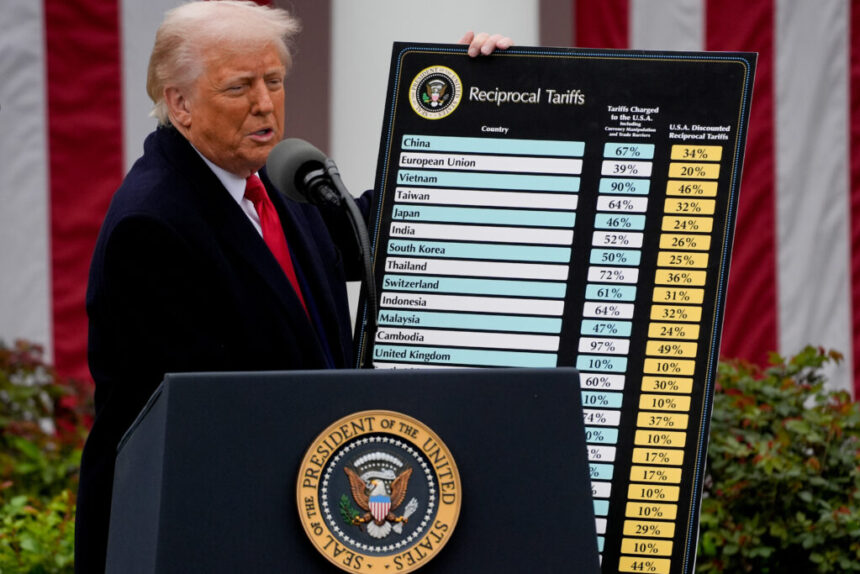The United States Court of International Trade has struck down U.S. President Donald Trump’s Liberation Day tariffs.
The court ruled that Trump exceeded his authority by imposing sweeping duties on imports from nearly every U.S. trading partner.
The ruling was delivered by a three-judge panel on May 28, 2025. The ruling marks a major setback for Trump’s trade policy, which aimed to address trade deficits and boost domestic manufacturing through broad tariffs.
The court’s unanimous decision by a three-judge panel in Manhattan emphasized that only Congress holds the constitutional power to regulate international trade.
The court found that the International Emergency Economic Powers Act (IEEPA), cited by Trump to justify the tariffs, does not grant the president unilateral authority to impose such measures.,
The panel held: “An unlimited delegation of tariff authority would constitute an improper abdication of legislative power to another branch of government.
“The Worldwide and Retaliatory Tariff Orders exceed any authority granted to the President by IEEPA to regulate importation by means of tariffs. The Trafficking Tariffs fail because they do not deal with the threats set forth in those orders.”
Pan-Atlantic Kompass reports that the Liberation Day tariffs, announced on April 2, 2025, imposed a 10% duty on imports from virtually all U.S. trading partners, with higher tariffs threatened for countries like China, Mexico, and Canada.
Trump also imposed 14% tariffs against exports from Nigeria into the US.
Following the declaration of the Liberation tariff, a lawsuit emerged, challenging Trump’s action.
The lawsuit, spearheaded by the Liberty Justice Center on behalf of five small U.S. businesses—including a New York wine importer and a Virginia-based educational kit manufacturer—argued that the tariffs caused significant financial harm.
The plaintiffs contended that the trade deficit, cited by Trump as a “national emergency,” did not meet the IEEPA’s requirement of an “unusual and extraordinary threat.”





